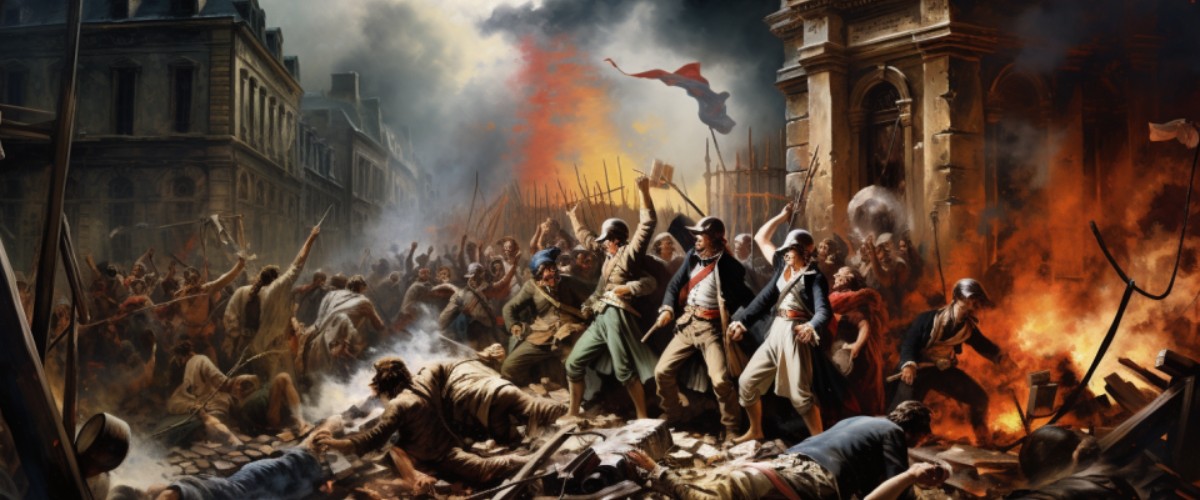A transformative period that forever altered France and indeed, much of the world, the French Revolution unravelled between 1789 and 1799. Symbolising a decisive rupture with the ancien régime, the revolution paved the way for significant social, political, and economic changes, with ripples that spread far beyond the nation’s borders.
Background: Seeds of Rebellion
Economic and Social Disparity
- Widespread famine and economic hardships
- Stark social inequality amongst the Estates
- Burgeoning financial crisis and state bankruptcy
Political Catalysts
- Weak leadership under King Louis XVI
- Popular dissatisfaction with the absolutist monarchy
- Influence of Enlightenment ideas
Key Figures
- Louis XVI: The indecisive monarch
- Marie Antoinette: The unpopular queen
- Maximilien Robespierre: The radical revolutionary
- Napoleon Bonaparte: The military general who eventually became ruler
Major Happenings: A Nation in Turmoil
- 1789: Storming of the Bastille
- Symbolic act of defiance against tyranny
- Sparks widespread uprising
- 1791: Establishment of a Constitutional Monarchy
- Limited the king’s powers
- Abolished feudalism
- 1792: Rise of the First French Republic
- Louis XVI overthrown and later executed
- Birth of radical political factions
- 1793-1794: Reign of Terror
- Robespierre and the Jacobins instate ruthless control
- Thousands executed via the guillotine
- 1799: The Rise of Napoleon
- Coup of 18 Brumaire establishes Napoleon as a significant power
- End of the revolutionary period
Immediate Outcomes: A Nation Remoulded
- Political Shifts
- Absolute monarchy collapses, replaced by fluctuating forms of republicanism
- Rise of the Napoleonic Era
- Social Changes
- Erosion of feudal structures
- Attempts towards equality and secularisation
- Economic Consequences
- National debt
- Widespread poverty and continued economic challenges
- Global Ramifications
- Wars and conflicts spill beyond France’s borders
- Pan-European ideological shifts
Long-term Impact: Echoes Through Time
- Global Repercussions
- The spread of nationalist and liberal ideas globally
- Inspiration for other revolutions and uprisings
- Political Evolution
- Seeds of modern democracy and the promotion of human rights
- Fostering the ideology of secularism
- Economic Transformation
- Redistributive policies and shifts in social structures
- The evolution of capitalist and socialist theories
- Cultural Legacy
- A boost to national identity and the French language
- Influence on art, literature, and philosophy
Conclusion: Reflections on a Revolutionary Epoch
A molten decade of rage, reform, and radicalisation, the French Revolution irrevocably sculpted new political and social paradigms. Its legacies — the principles of liberty, fraternity, and equality — continue to permeate contemporary discourse, underscoring its undying relevance in shaping our collective narratives. Even amidst the sprawling tapestry of global history, the revolution perpetually invites us to contemplate the limits of governance, the power of unity, and the ceaseless pursuit of a more egalitarian world.








